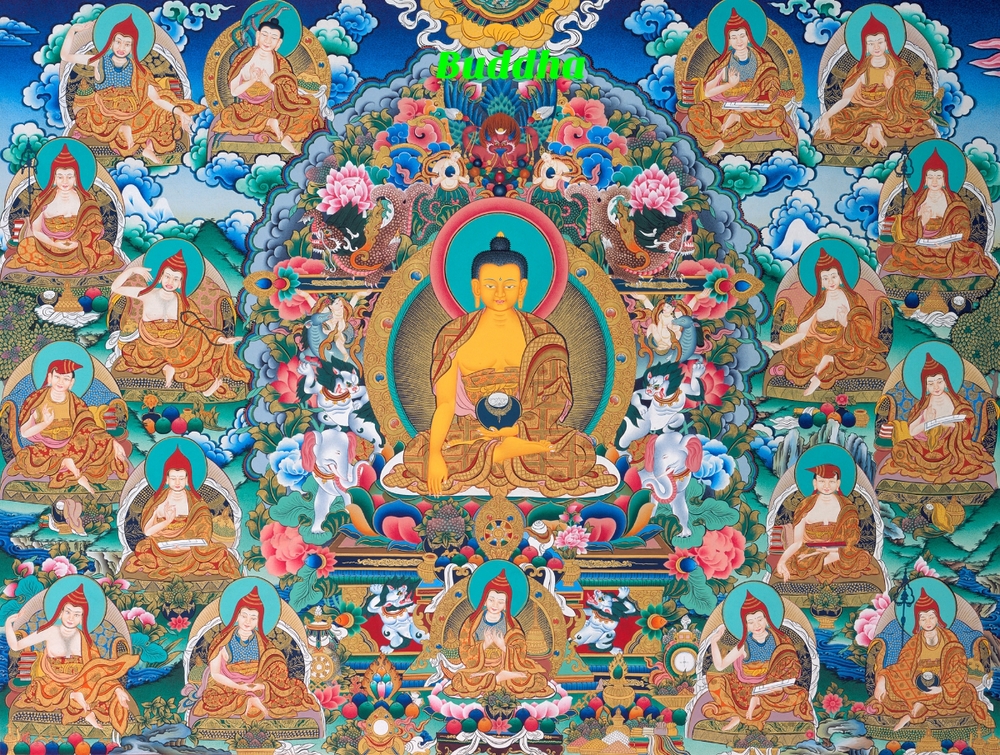I have recently come to read a great book written by the late Traleg Kyabgon Rinpoche called “Karma- What it is, What it isn’t and Why it matters”. Rinpoche was one of the early Dharma teachers to go to the West. He possessed an extensive training in traditional Buddhist philosophy combined with knowledge of western philosophy and psychology and the study of comparative religion. Able to communicate in fluent English, he was aware of the misappropriations of Buddhist terms in popular culture and was always concerned with the purity of his teachings. In this, Rinpoche’s last book, his thorough examination of karma, rebirth and related topics is of great benefit.
Like these excerpts on character: “The Buddha’s great emphasis on character can be seen in the traditional Buddhist devotion to matters of virtue. Virtue is explained in terms of the supports, or pillars, necessary for it to stand. Morality and ethics constitute the first pillar, the performance of wholesome deeds – being patient, understanding and exercising moral restraint. The second pillar is that of meditation or learning to focus our mind and develop mindfulness. The third pillar is that of generosity. The overall idea here is based on an economy of means: instead of thinking about all kinds of virtuous qualities, that we should develop this and that and make a very long list, we should instead simplify things and focus on developing the three supporting qualities of virtue. From there everything will flourish of its own accord.”
“It is not just the action performed that is important but also the character formation that goes with it. Of course character has to do with the accumulation of so called karmic disposition, a long standing part of Buddhist philosophy. What is not so explicitly stated though, but rather is implied in the sutras (prayers), is that in trying to develop certain character traits, an individual does in fact, as a consequence of his or her effort, becomes a different person.”
“The notion of character is very important due to Buddhism’s insistence that we do not have a stable, fixed kind of self-identity. What we have left to think about then hinges on the character we have built for ourselves in the course of our many lives. That character constitutes the sum total of what we are as human beings; it represents our person-hood. So the kind of person we have become, the sort of individual we are, is more important than the actions we perform.”
Or these excerpts on the subject of rebirth/ reincarnation: “The Buddhist concept of rebirth needs to be clearly delineated from ideas with which it is sometimes confused, especially the reincarnation idea frequently associated with Hinduism, whereby one returns in a different body but with the same soul. Buddhist rebirth also needs to be distinguished from the ancient Greek idea of immortality and the Christian idea of resurrection, both of which refer to an immortal soul. Nevertheless, an unchanging psychic principal that survives death and continues from one life to some other sort of life is inherent in all these ideas.”
“In Buddhism, that which “reincarnates”, to use that term, is not an unchanging self but a collection of psychic materials. It is not the same soul reincarnating. It is a rebirth. It is the same individual that has come back or takes a new life, but that individual is totally different because everything about him or her has changed.”
Or these excerpts on Karma: “Subscribing to Karmic theory does not entail denying the inspiration some people have gained from their belief in God and the good works they have undertaken because of it. A person’s ethical inspirations may well come from such a source and it is sometimes looked upon very favorably from a Buddhist perspective. We can certainly ground our ethical and moral values in beliefs other than karma and lead a morally edifying life. Nevertheless, karmic theory offers an alternative perspective.”
“At a fundamental level, the correct approach to karma, to cause and effect, is not to think of it too mechanically. We should not think that when we do something, we promptly and automatically experience the consequences. Rather we need to look at the different aspects of our lives as it interweaves with the warp and weft of action. It does not evolve in isolation but in a dynamic context. Nor is it a form of fatalism or determinism or an ideological vehicle for accepting one’s lot in life. Karmic theory is actually meant to give the opposite message, to encourage us to become even more determined to improve ourselves and move forward. Motivation is critical to the whole idea.”
This is a great, well written, easy to understand book. At an individual level, this book provides helpful advice and practical suggestions emphasizing how a correct understanding of karma can open up opportunities for transformation and help us live our lives more meaningful. It is my hope that by sharing this some people will be drawn to read this fine book.
THANK YOU VERY MUCH
The book “Karma – What it is, What it isn’t and Why it Matters” is published by Shambahla Press 2015.






